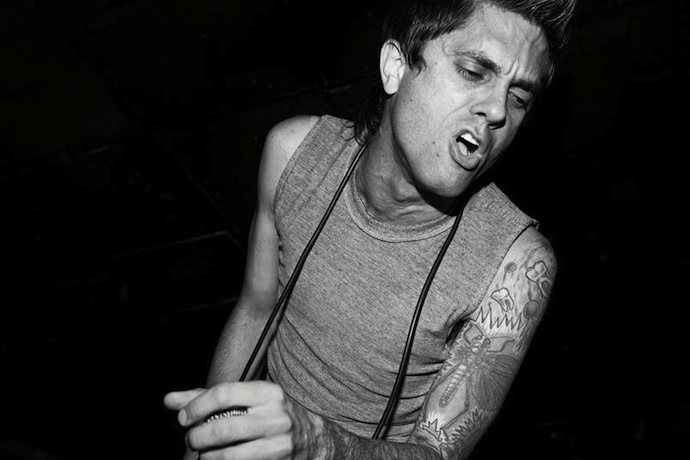
The Backbone of Any Legitimate Art: An Interview with Justin Pearson
06.06.13
Best known by many as the vocalist and bassist for iconic noisecore band The Locust, who recently played the Yeah Yeah Yeah’s curated I’ll Be Your Mirror festival in London, Justin Pearson has been playing in bands since the age of 13 and running Three One G Records out of San Diego for almost 20 years.
In 2010, Pearson published his first book From the Graveyard of the Arousal Industry to acclaim, followed by How to Lose Friends and Irritate People in 2011. Currently on tour with his latest band Retox, I was able to ask him a few questions where he discussed running a record label, hardcore music as art, and what makes San Diego different than other scenes.
* * *
FANZINE: The latest band you’re involved in, Retox, just played the Che Café in San Diego on tour. Has your perspectives on venues like that changed since when you first started going to shows there as a kid or similar venues when you first started going on tour?
JUSTIN PEARSON: My perspective is constantly changing about everything. When I was 13 and first went to the Che and then 15 when I first played there it was one thing. So over 20 years later, still playing there has similarities but at the same time, the biggest change in my perception is something that could have only come with time, and that is knowing the importance of what the Che is and also the energy it harnesses. Playing there yesterday was interesting, especially in comparison to playing the Punk Rock Bowling festival in Las Vegas the day before. To me, the Che holds all the universe’s punk ethics, where something that the festival in Vegas held very little. So things have changed with my perception of the Che, but it was only a matter of time till I had the understanding of what it was.
FZ: What, in your opinion, has made San Diego’s hardcore scene different from other cities?
JP: Certainly. This city has the ability to have bands like Heroin play with Crash Worship. Or the fact hardcore is not limited to a sound, but more so, a lifestyle. I think a lot of places on the planet lack that understanding. You can do whatever you want here, and it will make total sense. That mindset is rare in my opinion, in other places.
FZ: Where did some of the ideas for the aesthetics behind The Locust and the song titles come from?
JP: The lyrics and titles are just a part of the over all art. The material was a product of everyone involved, and the ideas come from the world we live in.
FZ: The list of musicians you’ve collaborated with is huge from Mark McCoy to Nick Zinner. Do you get a lot of musicians approaching you wanting to work with you personally or is it something organic?
JP: I do occasionally get people asking to collaborate. But for the most part, the collaborations are with people I know. However there is an exception to that and I have found myself in some uncomfortable situations. I have since learned what to avoid at this point.
FZ: What are some of the challenges of running Three One G now in the age of social media as opposed to when the Internet was first gaining popularity for home use?
JP: Lack of finance and a lack of time.
FZ: Has the rise of the digital format for music made a big impact for record collectors? You guys still release colored and picture disc LP’s.
JP: I am not sure of the impact. I do know that the music industry is complicated and I have no idea how to be financially successful. But that was never a reason to do what I do.
FZ: Your last book How to Lose Friends and Irritate People was released in 2011 and is already out of print. Any new book projects in the works?
JP: I have been slowly working on a book about Three One G, discussing every release and interviewing artists who are part of the label.
FZ: Finally, you’re quoted say saying about the label “The labor of love shows sincerity, as well as integrity.” How important for you is sincerity still in creating something?
JP: It’s the backbone of any legitimate art.